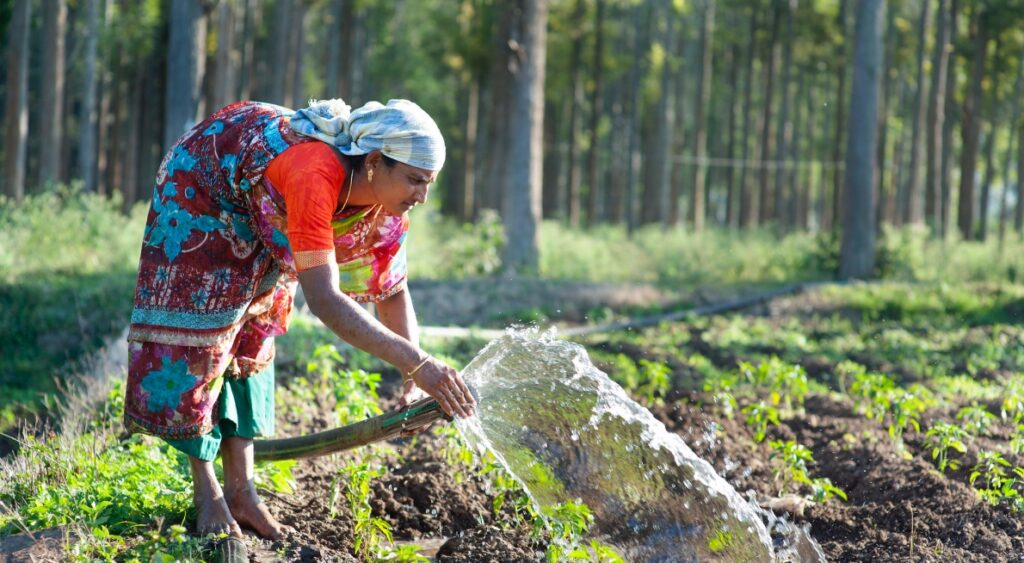
India’s organic farming movement has gained significant momentum in recent years, driven by growing consumer demand for chemical-free produce and the need for sustainable agricultural practices. However, water management remains a critical challenge for organic farmers, particularly in regions with erratic rainfall and depleting groundwater levels. Efficient water storage solutions are essential to support organic farming, ensuring that farmers have reliable access to water while preserving environmental sustainability. Here’s an exploration of the challenges and potential solutions for water storage in India’s organic farming sector.
The Importance of Water Storage in Organic Farming
Organic farming relies on natural processes and avoids synthetic inputs, making efficient water use a cornerstone of its sustainability. Consistent water availability is crucial for practices like mulching, crop rotation, and composting, which are integral to organic farming. Inadequate water storage can disrupt these practices, affecting crop yield and quality. Additionally, organic farming often focuses on biodiversity and soil health, which require carefully managed irrigation to maintain ecological balance.
Challenges in Water Storage for Organic Farmers
Seasonal Rainfall Dependency
Many organic farms depend on monsoon rains, making them vulnerable to seasonal and regional variations. Prolonged dry spells or delayed monsoons can lead to water scarcity, jeopardizing crops. Lack of storage systems to capture and store excess rainwater further exacerbates the issue.
Limited Access to Infrastructure
Small-scale organic farmers often lack the resources to invest in advanced water storage systems. Traditional methods like open ponds or small tanks are inefficient and prone to evaporation, seepage, and contamination. This limits the amount of water available during critical periods.
Groundwater Depletion
Excessive reliance on groundwater in some regions has led to significant depletion, reducing the availability of this critical resource. Organic farmers, who prioritize sustainability, face the challenge of accessing groundwater responsibly while ensuring long-term replenishment.
High Costs of Sustainable Solutions
While technologies like rainwater harvesting and drip irrigation are highly effective, their initial costs can be prohibitive for many farmers. Without adequate subsidies or financial support, transitioning to modern water storage methods remains a hurdle for organic farmers.
Innovative Water Storage Solutions for Organic Farming
1. Rainwater Harvesting Systems
Rainwater harvesting is one of the most effective solutions for organic farmers. By capturing and storing rainwater in tanks, reservoirs, or underground pits, farmers can secure a reliable water source for irrigation. This method reduces dependence on groundwater and provides a sustainable solution for regions with unpredictable rainfall.
2. Farm Ponds with Liners
Constructing farm ponds and using liners to prevent seepage can help farmers store large quantities of water. These ponds can be used to collect rainwater or channel runoff from nearby fields. The addition of solar-powered pumps can further enhance water distribution efficiency.
3. Check Dams and Recharge Wells
Building check dams and recharge wells in organic farming areas can help capture rainwater and recharge groundwater levels. These structures also prevent soil erosion, maintaining the fertility and moisture content essential for organic practices.
4. Drip Irrigation and Micro-Irrigation Systems
Drip and micro-irrigation systems ensure precise water delivery to crops, minimizing wastage. These systems are particularly beneficial for organic farmers who cultivate diverse crops, as they can cater to the specific water needs of each plant.
5. Underground Water Storage Tanks
Underground storage tanks are a space-efficient solution for conserving water. They reduce evaporation and contamination, ensuring that the stored water remains usable for a longer time. These tanks can be combined with rainwater harvesting systems for optimal use.
Conclusion
Water storage solutions are vital to the success of India’s organic farming movement. By adopting rainwater harvesting, advanced irrigation systems, and collaborative storage methods, organic farmers can address water scarcity challenges while maintaining ecological integrity. Government support through subsidies and training programs can further accelerate the adoption of these solutions, ensuring that organic farming thrives as a sustainable and reliable food production system. Sustainable water management is not just a necessity but a foundation for the future of organic agriculture in India.


